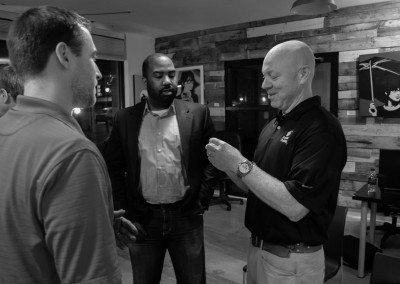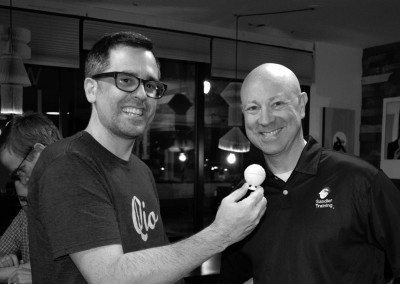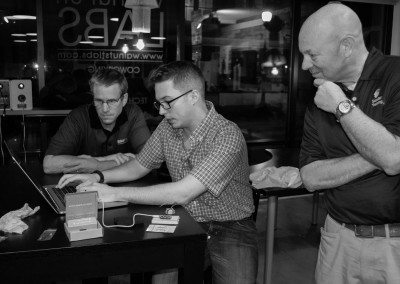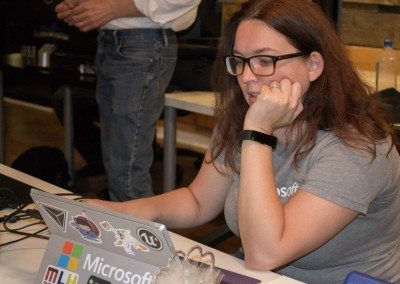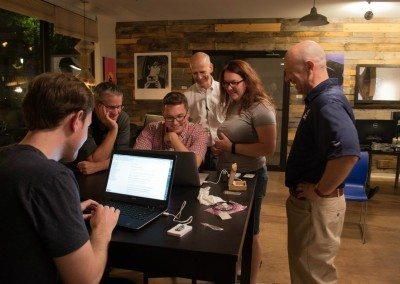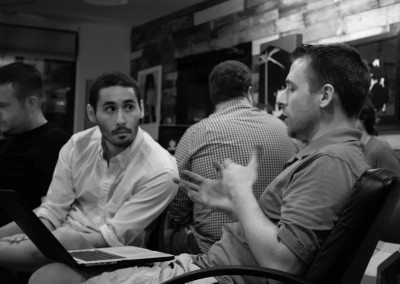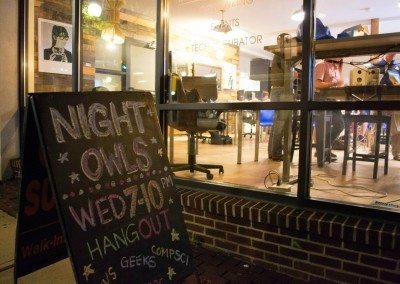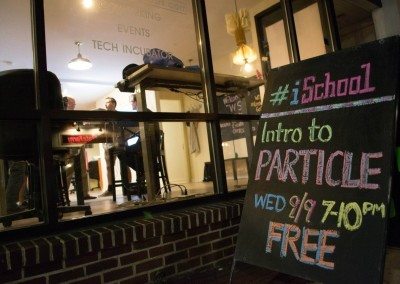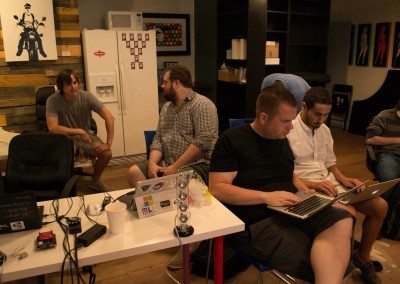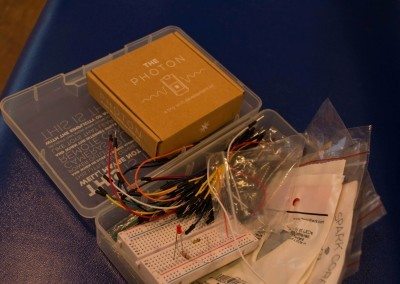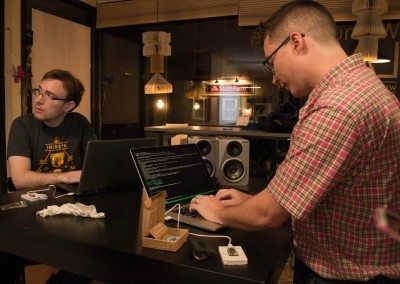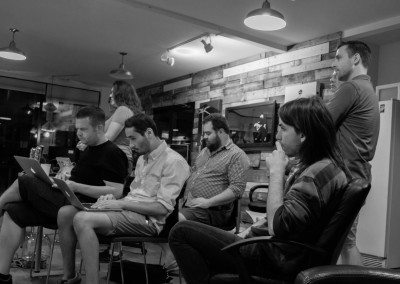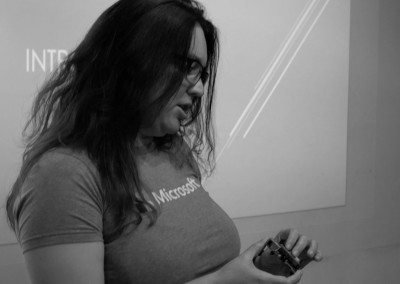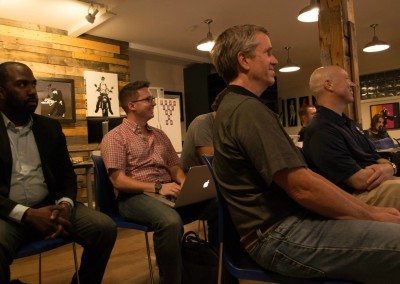Springboarding from Intern to CEO w/SETVI’s Joshua David
Joshua David began his foray into his new company as a relentless, problem-solving intern. His entrepreneurial spirit emerged early. “I was an eBay power seller while in high school,” Joshua relates. “I bought cell phones overseas, unlocked them, and re-sold them. I was learning about profit and loss in high school, and making good money.” As a student at Drexel, Joshua took an internship at a Malvern-based medical device company, and that paved the way for his next entrepreneurial endeavor. “They didn’t treat me as an intern, but as a part-time employee. I got to know the CEO and CFO. They even paid for my 21st birthday party.” “As an intern, I just focused on helping anyone I could. If I couldn’t solve a problem, I’d come up with some other options.” 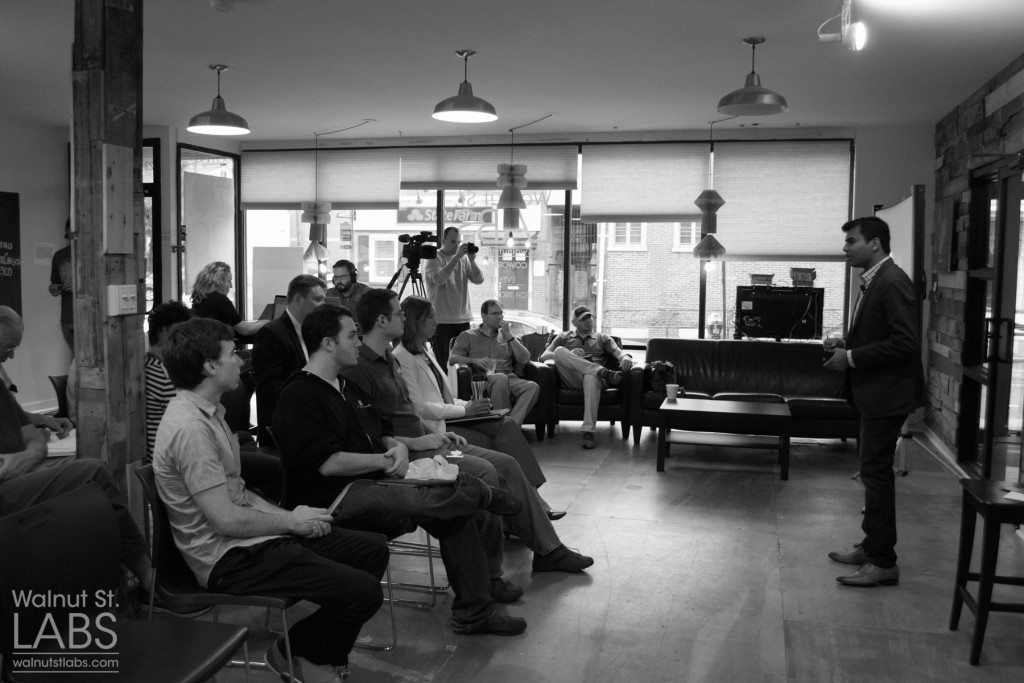 The SETVI Spark One of the problems he saw early on was that the sales people weren’t using the marketing portal, and that the marketing people were complaining their marketing tools weren’t working. Joshua decided to jump on his idea, and he knew his friend Stephan was just the person he needed. “Stephan knew I was serious about my idea when I showed up with my iPad and a bunch of documents. We met at noon at our usual diner spot and didn’t finish until 1 a.m.” “We quickly identified what we lacked, and started going to other startups. One of the hardest things about starting a company is having people believe in you. To work for you without any salary.” Eventually, they found the right team members and built the content management system, creating a minimum viable product from a series of screen captures. “With SETVI, salespeople can tailor their presentations for whomever they are meeting. They can see what their clients are doing with the presentation once they send it to them. Are they opening it? Which slides do they look at or forward to someone else?”
The SETVI Spark One of the problems he saw early on was that the sales people weren’t using the marketing portal, and that the marketing people were complaining their marketing tools weren’t working. Joshua decided to jump on his idea, and he knew his friend Stephan was just the person he needed. “Stephan knew I was serious about my idea when I showed up with my iPad and a bunch of documents. We met at noon at our usual diner spot and didn’t finish until 1 a.m.” “We quickly identified what we lacked, and started going to other startups. One of the hardest things about starting a company is having people believe in you. To work for you without any salary.” Eventually, they found the right team members and built the content management system, creating a minimum viable product from a series of screen captures. “With SETVI, salespeople can tailor their presentations for whomever they are meeting. They can see what their clients are doing with the presentation once they send it to them. Are they opening it? Which slides do they look at or forward to someone else?” 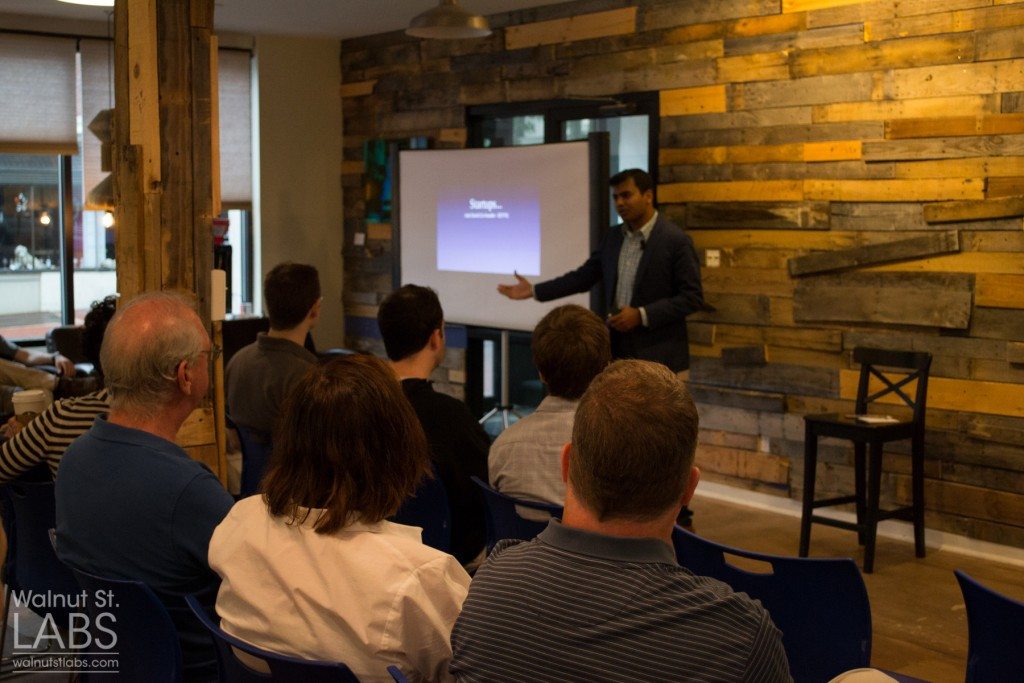 On Charging for your Beta Version Joshua found that clients were willing to pay for SETVI right away. “We started selling SETVI in beta, because they saw value in it. I think you should always charge for your product, because if they’re not buying it, you can identify the problem and fix it.” Logitec was their very first client. “The rep was more interested in the analytics, but we didn’t have the analytics built yet. He was going to buy a product from another vendor, but he liked ours. So he paid for it and we agreed to have the analytics in 2-3 months.”
On Charging for your Beta Version Joshua found that clients were willing to pay for SETVI right away. “We started selling SETVI in beta, because they saw value in it. I think you should always charge for your product, because if they’re not buying it, you can identify the problem and fix it.” Logitec was their very first client. “The rep was more interested in the analytics, but we didn’t have the analytics built yet. He was going to buy a product from another vendor, but he liked ours. So he paid for it and we agreed to have the analytics in 2-3 months.” 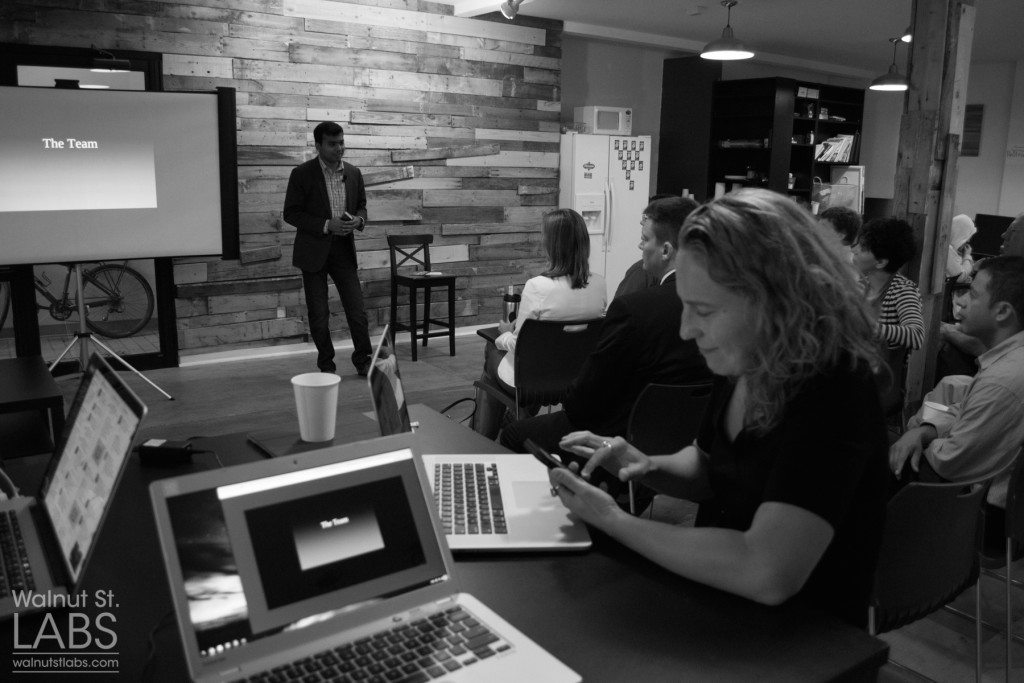 Coming Full Circle “I reached out to the people I’d helped as an intern. I said, ‘remember that problem you were having? I solved it.’” Those connections paid off. “Now, they are clients. I emailed the CFO of the company I interned at, and sent him a video of what I was doing. He loved it. It’s hard to believe that 3 years ago I was moving printers around, and today I was sitting in a meeting with the CFO.
Coming Full Circle “I reached out to the people I’d helped as an intern. I said, ‘remember that problem you were having? I solved it.’” Those connections paid off. “Now, they are clients. I emailed the CFO of the company I interned at, and sent him a video of what I was doing. He loved it. It’s hard to believe that 3 years ago I was moving printers around, and today I was sitting in a meeting with the CFO. 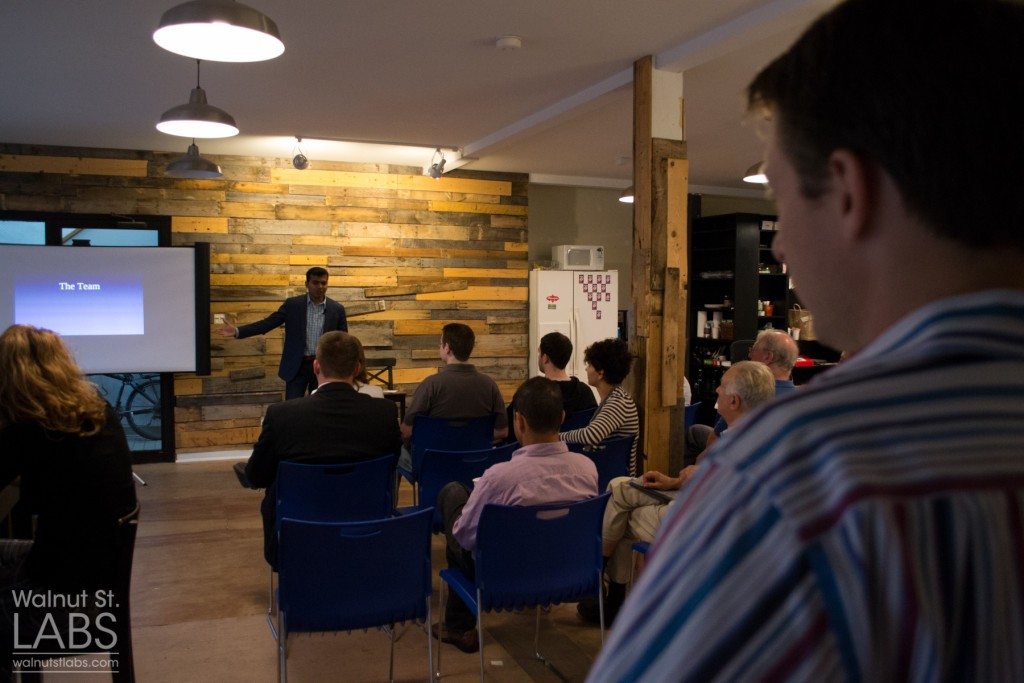 On Determination “There are going to be really high highs, and really low lows. It’s a lot of hard work. There were a few times I worked 40 hours in less than 2 days. One time we landed an investor after doing that, so it was a nice payoff.”
On Determination “There are going to be really high highs, and really low lows. It’s a lot of hard work. There were a few times I worked 40 hours in less than 2 days. One time we landed an investor after doing that, so it was a nice payoff.”
 The SETVI Spark One of the problems he saw early on was that the sales people weren’t using the marketing portal, and that the marketing people were complaining their marketing tools weren’t working. Joshua decided to jump on his idea, and he knew his friend Stephan was just the person he needed. “Stephan knew I was serious about my idea when I showed up with my iPad and a bunch of documents. We met at noon at our usual diner spot and didn’t finish until 1 a.m.” “We quickly identified what we lacked, and started going to other startups. One of the hardest things about starting a company is having people believe in you. To work for you without any salary.” Eventually, they found the right team members and built the content management system, creating a minimum viable product from a series of screen captures. “With SETVI, salespeople can tailor their presentations for whomever they are meeting. They can see what their clients are doing with the presentation once they send it to them. Are they opening it? Which slides do they look at or forward to someone else?”
The SETVI Spark One of the problems he saw early on was that the sales people weren’t using the marketing portal, and that the marketing people were complaining their marketing tools weren’t working. Joshua decided to jump on his idea, and he knew his friend Stephan was just the person he needed. “Stephan knew I was serious about my idea when I showed up with my iPad and a bunch of documents. We met at noon at our usual diner spot and didn’t finish until 1 a.m.” “We quickly identified what we lacked, and started going to other startups. One of the hardest things about starting a company is having people believe in you. To work for you without any salary.” Eventually, they found the right team members and built the content management system, creating a minimum viable product from a series of screen captures. “With SETVI, salespeople can tailor their presentations for whomever they are meeting. They can see what their clients are doing with the presentation once they send it to them. Are they opening it? Which slides do they look at or forward to someone else?”  On Charging for your Beta Version Joshua found that clients were willing to pay for SETVI right away. “We started selling SETVI in beta, because they saw value in it. I think you should always charge for your product, because if they’re not buying it, you can identify the problem and fix it.” Logitec was their very first client. “The rep was more interested in the analytics, but we didn’t have the analytics built yet. He was going to buy a product from another vendor, but he liked ours. So he paid for it and we agreed to have the analytics in 2-3 months.”
On Charging for your Beta Version Joshua found that clients were willing to pay for SETVI right away. “We started selling SETVI in beta, because they saw value in it. I think you should always charge for your product, because if they’re not buying it, you can identify the problem and fix it.” Logitec was their very first client. “The rep was more interested in the analytics, but we didn’t have the analytics built yet. He was going to buy a product from another vendor, but he liked ours. So he paid for it and we agreed to have the analytics in 2-3 months.”  Coming Full Circle “I reached out to the people I’d helped as an intern. I said, ‘remember that problem you were having? I solved it.’” Those connections paid off. “Now, they are clients. I emailed the CFO of the company I interned at, and sent him a video of what I was doing. He loved it. It’s hard to believe that 3 years ago I was moving printers around, and today I was sitting in a meeting with the CFO.
Coming Full Circle “I reached out to the people I’d helped as an intern. I said, ‘remember that problem you were having? I solved it.’” Those connections paid off. “Now, they are clients. I emailed the CFO of the company I interned at, and sent him a video of what I was doing. He loved it. It’s hard to believe that 3 years ago I was moving printers around, and today I was sitting in a meeting with the CFO.  On Determination “There are going to be really high highs, and really low lows. It’s a lot of hard work. There were a few times I worked 40 hours in less than 2 days. One time we landed an investor after doing that, so it was a nice payoff.”
On Determination “There are going to be really high highs, and really low lows. It’s a lot of hard work. There were a few times I worked 40 hours in less than 2 days. One time we landed an investor after doing that, so it was a nice payoff.”